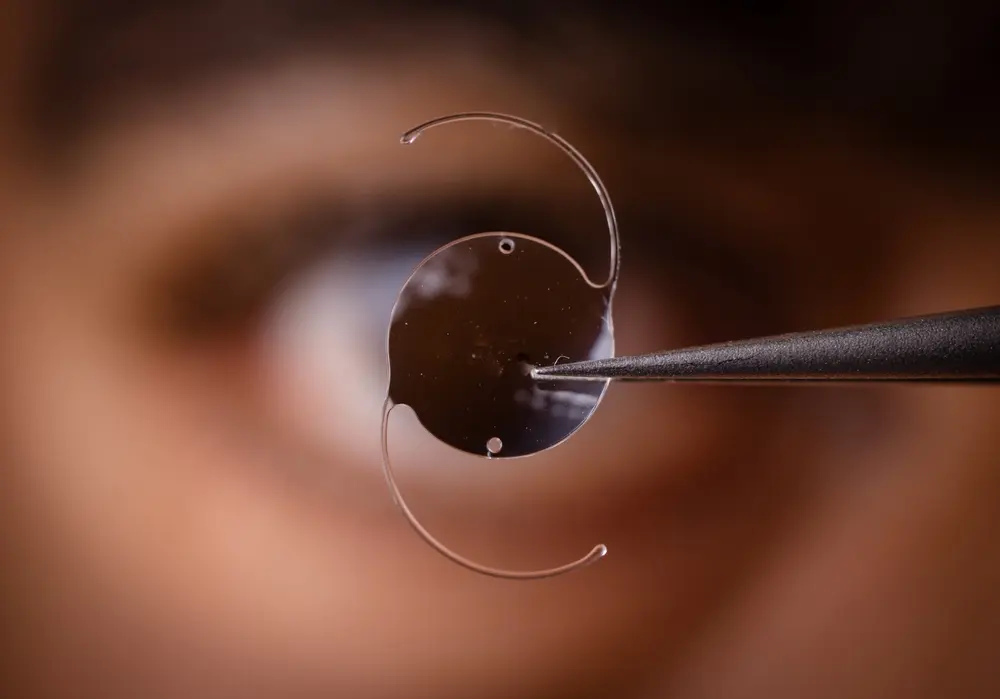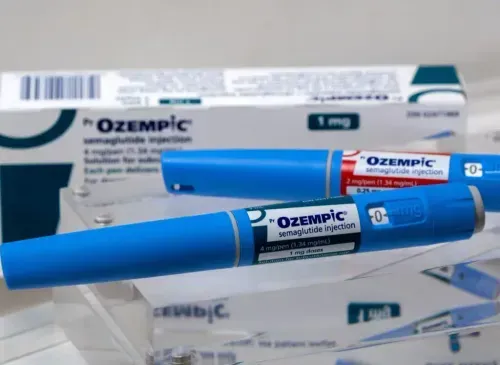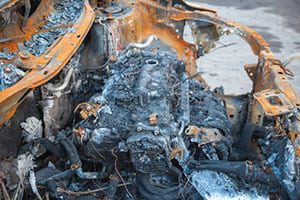Electric Scooter Brand Zooz and Toos Under Scrutiny Following Fatal Fire Incidents
 The recent fire tragedy in New York City that claimed the lives of two individuals, a seven-year-old child and a 19-year-old young adult, has turned the spotlight onto the safety of certain electric scooters. The U.S. Consumer Product Safety Commission (CPSC) has issued a serious advisory for consumers, urging them to refrain from using the Toos Elite 60-volt electric scooters, which were implicated in the aforementioned fatal incident.
The recent fire tragedy in New York City that claimed the lives of two individuals, a seven-year-old child and a 19-year-old young adult, has turned the spotlight onto the safety of certain electric scooters. The U.S. Consumer Product Safety Commission (CPSC) has issued a serious advisory for consumers, urging them to refrain from using the Toos Elite 60-volt electric scooters, which were implicated in the aforementioned fatal incident.
Sold under the brand names “Zooz” and “Toos”, these electric scooters were available for purchase exclusively at Toos Urban Ride retail outlets in New York and the company’s official website. The primary concern arises from the lithium-ion battery used in these scooters, which is suspected to have ignited the fatal fire in April 2023.
Notably, the Toos Elite 60-volt scooter involved in the fire was reportedly being charged using a 48-volt charger, also retailed by Toos. This charger has been under scrutiny as UL Solutions revealed that these 48-volt chargers were sporting unauthorized UL certification marks, raising questions about their safety standards. The exact cause behind the battery’s ignition remains uncertain, but concerns are amplified due to the absence of safety testing or certification by an accredited laboratory.
The CPSC’s advisory isn’t the only alarm bell ringing about the safety of micromobility devices. The commission’s recent report highlighted an escalating trend in injuries associated with such devices, which have surged by approximately 23% annually since 2017. Out of these, a worrying number of incidents have been linked to fires, some tragically proving fatal. From January 2021 to November 2022, the CPSC has acknowledged 19 deaths connected to micromobility devices, making this a grave concern for consumers and regulators alike.
Interestingly, the company behind the Toos scooters, Toos Urban Ride, has presented a different perspective. They argue that in the fatal fire incident, an incorrect voltage charger was used. Further, they emphasized that an evaluation of a Toos 60-volt scooter by CPSC’s technical team did not reveal any obvious defects. As a proposed resolution, the company offered to launch a corrective action plan, which would encompass a free safety inspection to check the scooter’s battery voltage and wiring and also scan for potential damage, ensuring necessary repairs. However, this proposal was not accepted by the CPSC.
For now, the primary message from CPSC remains clear – consumers should cease using the Toos Elite 60-volt scooters, irrespective of the charger in use. While the debate on the root cause continues, the safety of consumers remains paramount. Anyone experiencing issues with the Toos scooters, chargers, or any other product-related injuries should promptly report them to CPSC at www.SaferProducts.gov.
Why Are Lithium-Ion Batteries So Dangerous?
Lithium-ion (Li-ion) batteries have become a cornerstone in the technological age, driving the functionality of devices ranging from the everyday cell phones to advanced electric cars. Their remarkable benefits are evident in their high energy density and long lifespans. However, there are inherent risks associated with them. One of the primary dangers stems from their chemical content. Specifically, they encompass a highly reactive alkali metal: lithium. When damaged or mishandled, this metal can undergo chemical reactions that have the potential to result in fires or even explosions.
Delving deeper into the anatomy of a Li-ion battery reveals separators that play a critical role in keeping the positive and negative electrodes apart. Failures in these separators, whether due to manufacturing defects or accidental damage, can provoke an internal short circuit. Such an occurrence can lead to a swift generation of heat, which has the potential to ignite the contained electrolytes. This problem segues into another perilous phenomenon associated with these batteries, known as thermal runaway. This refers to a self-perpetuating chain reaction wherein an initial bout of excessive heat leads to subsequent reactions that produce even more heat. The sources of such escalations can be varied, ranging from overcharging the battery to physical damage like puncturing, or even environmental factors like high ambient temperatures. The ramifications of thermal runaway are severe, with possible outcomes including fires and explosions.
But the hazards don’t stop there. Overcharging a Li-ion battery can pose significant threats. If the battery receives a charge beyond its design limit, the superfluous energy might cause the battery to overheat, culminating in potential fires or explosions. This threat is further exacerbated by the very advantage that makes these batteries popular: their high energy density. While this allows for prolonged usage, it also signifies the presence of a large amount of energy within a confined space. If not controlled, the inadvertent release of this energy can be catastrophic.
Furthermore, the electrolytes within these batteries are inherently flammable. A punctured or otherwise compromised battery might leak these electrolytes, which upon exposure can ignite. And then there’s the issue of disposal. Discarding Li-ion batteries carelessly with regular waste can lead to them getting damaged, thereby causing leakage or short-circuiting, which in turn can be a precursor to fires. The manufacturing process itself isn’t immune to issues. Imperfections or contaminations during this phase, or even the production of substandard separators, can compromise the overall safety of the battery.
Externally, Li-ion batteries are not impervious to factors like extreme temperatures, high levels of humidity, or physical trauma. Any of these can undermine the battery’s integrity, creating potentially hazardous situations. As batteries age and undergo numerous charge-discharge cycles, they naturally degrade. This degradation process makes older batteries more vulnerable to malfunctions, increasing their risk profile. Moreover, while many contemporary devices incorporate mechanisms to avert overcharging or deep discharging, these can sometimes be faulty or insufficient, leading to potential battery failures.
While the intrinsic dangers associated with lithium-ion batteries cannot be understated, it’s pivotal to understand that most of these batteries, when handled and used appropriately, are safe and operate seamlessly. Adherence to manufacturer guidelines, proper usage, and mindful handling can diminish the associated risks significantly. The silver lining is that the technological domain is ever-evolving, with relentless research and innovations aiming to usher in even safer iterations of lithium-ion batteries in the foreseeable future.
Why Recognizing these Defects Matters
 Understanding these distinctions is crucial for both manufacturers and consumers. Manufacturers must be aware of these categories to ensure they maintain rigorous quality control and proper marketing practices, thereby avoiding potential legal liabilities. For consumers, recognizing these defects can be vital in determining their rights and potential remedies if they’ve been harmed by a product.
Understanding these distinctions is crucial for both manufacturers and consumers. Manufacturers must be aware of these categories to ensure they maintain rigorous quality control and proper marketing practices, thereby avoiding potential legal liabilities. For consumers, recognizing these defects can be vital in determining their rights and potential remedies if they’ve been harmed by a product.
Moreover, in the context of lawsuits, categorizing the defect correctly can significantly influence the legal strategy and outcomes. This once again underscores the importance of legal guidance when navigating product liability issues. An attorney’s expertise can be invaluable in identifying the exact nature of the defect and building a compelling case around it.
Product Liability Lawsuits Surrounding Electric Scooters
In the realm of product liability, manufacturers, distributors, and suppliers can be held accountable if their products cause harm or injury to consumers. These liabilities hinge on product defects that should not exist in items that are distributed to the general public. For clarity, let’s explore the three primary types of product defects:
- Design Defects: Design defects are inherent flaws in a product’s design. They exist even before the product goes into the manufacturing phase. A product with a design defect is intrinsically unsafe or ineffective, no matter how well it’s made. If a manufacturer produces a product that is inherently dangerous or unfit for its intended use due to its design, and a consumer gets harmed as a result, the manufacturer can be held responsible. For instance, an electric kettle designed without an auto-shutoff feature, leading to potential fire hazards, can be deemed to have a design defect.
- Manufacturing Defects: These defects arise during the construction or production phase of the item. Even if a product is perfectly designed, manufacturing errors can render it unsafe or less effective than intended. A manufacturer may be held liable if the final product deviates from its intended design in a way that it poses a risk to consumers. For instance, if a batch of tablets contains a harmful ingredient not present in its original design, it’s a manufacturing defect.
- Defects in Marketing: This type of defect relates to improper instructions, insufficient safety warnings, or misleading labeling. Essentially, it’s about how a product is represented and sold to the public. Manufacturers and suppliers can be held liable if they fail to provide clear and accurate information about how to safely use the product or if they do not warn consumers about potential risks. For instance, if a medication does not include a warning about severe side-effects when taken with another common drug, it could be considered a marketing defect.
Manufacturers, distributors, and suppliers have an innate responsibility to ensure the safety and effectiveness of their products. Whether it’s through flaws in the foundational design, discrepancies during the manufacturing process, or inadequacies in the marketing and representation of these products, any deviation can lead to significant harm for the end-user. As consumers become increasingly reliant on such products, it’s paramount for companies to exercise diligence at every stage of a product’s life cycle, from conception to sale. For those affected, understanding the nuances of product liability offers a means to seek redress. In an age where technological advancements are relentless, ensuring the safety and integrity of products like electric scooters is more crucial than ever, both for consumer trust and the longevity of the brands involved.
Damages Associated with This Issue
Affected individuals can claim various types of damages, such as:
- Medical Expenses: Covering hospital bills, therapy, rehabilitation, and any ongoing medical treatments related to the incident.
- Lost Wages: Compensation for any income lost due to the injury and potential future earnings if the victim is unable to return to work.
- Pain and Suffering: Non-economic damages for the physical pain and emotional trauma endured by the victim.
- Loss of Consortium: Damages sought by family members for the loss of love, companionship, and affection if the victim is severely injured or deceased.
Injuries, Property Loss, and Deaths
- Injuries: Burns from fires ignited by the malfunctioning battery, respiratory issues from smoke inhalation, or even injuries sustained during attempts to escape or combat the fire.
- Property Loss: Destruction of personal property due to the fire, including damage to homes, furniture, electronics, and other personal belongings. There’s also the cost of property repairs and replacement.
- Deaths: As reported, the tragic incident in New York City resulted in the loss of two lives. Families of the deceased can file a wrongful death lawsuit, seeking compensation for funeral expenses, loss of financial support, and the emotional anguish of losing a loved one.
The events surrounding the Toos Elite 60-volt electric scooters serve as a grave reminder of the potential repercussions of product malfunctions. Legal recourse, while providing a pathway to justice and compensation, emphasizes the paramount importance of consumer safety and the responsibilities of manufacturers and sellers in ensuring it.
The Indispensable Role of an Attorney
The decision to take legal action can be both daunting and necessary, particularly when one’s rights have been violated or harm has been incurred. Whether it’s a personal injury, breach of contract, or any other civil matter, the lawsuit process can be intricate and, at times, overwhelming. Here, we’ll delve into the core stages of the lawsuit process and elucidate the invaluable role of an attorney in ensuring the protection of your rights and interests at each juncture.
- Initial Consultation & Evaluation: Before initiating any lawsuit, it’s crucial to determine the viability of the claim. An experienced attorney can assess the merits of your case, advise on the possible outcomes, potential damages recoverable, and the estimated time and cost of the lawsuit. This initial guidance can prevent futile legal battles and set clear expectations.
- Pleadings & Filing: This stage involves drafting and filing the initial complaint or petition, outlining the claimant’s grievances and the relief sought. Properly drafting pleadings is an art. A lawyer ensures that all essential elements of the claim are adequately addressed, potential defenses are anticipated, and the claim is filed within the statutory time limits.
- Discovery: This is the fact-finding phase where both parties exchange information relevant to the case, including documents, witness testimonies, and expert reports. An attorney knows what to look for, which questions to ask, and how to challenge the authenticity and relevance of evidence presented by the opposing side. They can also shield you from overly intrusive or irrelevant requests.
- Pre-Trial Motions: These are formal requests made to the court seeking specific rulings, often related to the admissibility of evidence or even to dismiss parts (or all) of the opposing side’s case. Skilled lawyers can use these motions strategically to strengthen your position and potentially resolve the matter even before it reaches trial.
- Trial: If the case isn’t settled, it proceeds to trial, where evidence is presented, and a judgment is made. Trial advocacy is a specialized skill. From selecting a favorable jury to presenting evidence persuasively and cross-examining witnesses effectively, an attorney’s expertise can significantly influence the trial’s outcome.
- Settlement Negotiations: At any stage of the lawsuit, parties can negotiate to settle the matter out of court. Lawyers are adept negotiators. They can assess settlement offers, determine if they align with your best interests, and negotiate terms that are favorable to you.
- Appeals: If the trial verdict is unfavorable, there’s often an opportunity to appeal the decision. The appeal process requires a deep understanding of legal principles and precedents. Attorneys can identify grounds for appeal and present compelling arguments to have the verdict overturned or modified.
While it’s technically possible to navigate the lawsuit process independently, the complexities and potential pitfalls make it risky. An attorney not only levels the playing field but also equips you with the expertise and advocacy needed to achieve the best possible outcome. Whether it’s ensuring compliance with procedural nuances, crafting persuasive arguments, or negotiating settlements, having an attorney by your side every step of the way is not just advisable; it’s indispensable.
Why You Need an Experienced Attorney for Filing Your Lawsuit
Venturing into the legal realm, particularly when filing a lawsuit, can be a complex and intimidating experience. Whether you’re seeking justice for a personal injury, product defect, malpractice, or any other grievance, having an experienced attorney by your side is paramount. Here’s why:
- Understanding of Legal Procedures: Legal processes are intricate, filled with deadlines, paperwork, and procedures that might seem foreign to the uninitiated. Experienced attorneys are well-versed with court procedures, filing requirements, and the legal jargon that accompanies such tasks. A minor oversight in any of these can jeopardize your entire case.
- Strategic Expertise: Filing a lawsuit isn’t just about presenting the facts; it’s about presenting them persuasively. An experienced attorney will know how to build a compelling narrative, which evidence to highlight, which legal precedents to cite, and how to navigate negotiations or settlements.
- Objective Perspective: When you’re personally involved in a case, emotions can run high, potentially clouding judgment. An attorney provides an objective perspective, ensuring that decisions are made based on facts and legal rationale rather than emotions.
- Access to Resources: Experienced attorneys have networks of professionals to call upon, from investigators to reconstruct accidents, to medical experts who can testify on injuries. They also have access to vast legal databases and research tools that can be instrumental in strengthening your case.
- Alternative Dispute Resolution: Not every lawsuit needs to end up in court. Often, disputes can be settled through mediation or arbitration, which can be quicker and less expensive. Experienced attorneys can guide you through these processes, ensuring your interests are adequately represented.
- Contingency Fees: Many attorneys work on a contingency fee basis, especially in personal injury cases. This means you only pay if you win the case. This structure not only makes legal representation more accessible but also means the attorney is motivated to win your case.
- Mitigating Risks: The opposing side will likely have their own legal representation, ready to counter your claims. Having an experienced attorney ensures you’re not outmaneuvered or caught off-guard, leveling the playing field.
- Peace of Mind: Lawsuits can be stressful. Knowing you have an expert in your corner, taking care of all legal aspects, allows you to focus on recovery and other personal concerns.
- Comprehensive Settlements: Studies have shown that individuals with legal representation often receive higher settlements than those without. An experienced attorney knows how to negotiate effectively, ensuring you get the compensation you deserve.
- Ethical Considerations: Attorneys are bound by a code of ethics. They have a fiduciary duty to act in their client’s best interest. This ensures a level of trustworthiness and professionalism in all dealings.
While you may have the right to represent yourself in court, it’s rarely the best option. The complexities of the legal system and the stakes involved make having an experienced attorney not just beneficial but essential. Investing in professional legal representation maximizes your chances of a favorable outcome, ensuring that your rights and interests are robustly protected.
Why is the National Product Liability Law Firm Parker Waichman LLP Considered a Top-Rated Firm?
Parker Waichman LLP has made its mark as one of the top-rated national product liability law firms. Their recognition in this specialized domain of law is a result of a combination of factors, making them a go-to choice for many who seek justice. Here’s why Parker Waichman LLP is held in such high regard:
- Extensive Experience: Parker Waichman LLP boasts a rich history of handling product liability cases. Their team of experienced attorneys has dealt with a wide array of cases, from defective medical devices to faulty consumer products, granting them a depth and breadth of knowledge in the field.
- Impressive Track Record: The firm’s success is not only about the number of cases they’ve handled, but also the outcomes of these cases. They’ve secured multi-million dollar verdicts and settlements for their clients, showcasing their prowess in the courtroom and in negotiations.
- Client-Centric Approach: Parker Waichman LLP is known for its commitment to clients. They believe in clear communication, ensuring clients are informed at every stage of their case. Their personalized approach makes clients feel valued and understood.
- Nationwide Presence: While many law firms operate within a particular state or region, Parker Waichman LLP has a national presence. This allows them to take on product liability cases from across the country, and also lends them a broader perspective on national trends and regulations.
- Dedicated Research and Resources: The firm invests in thorough research, employing medical experts, engineers, and other specialists to bolster their cases. Their commitment to staying abreast of the latest research and legal precedents makes them formidable adversaries in any legal setting.
- Recognition by Peers and Institutions: Parker Waichman LLP’s reputation isn’t only based on client feedback. The firm and its lawyers have received accolades and recognitions from professional bodies, legal directories, and peers, cementing their status within the legal community.
- No Upfront Fees: Understanding the financial concerns that come with legal representation, the firm often works on a contingency fee basis, ensuring clients don’t have to pay unless they win the case.
- Ethical Practices: While success is a significant metric, how one achieves success is equally crucial. Parker Waichman LLP is renowned for its ethical practice, ensuring that each case is handled with integrity and professionalism.
- Continued Learning and Development: The legal world is dynamic, with laws, regulations, and precedents constantly evolving. The firm emphasizes continued learning and development, ensuring its lawyers are always updated with the latest in the world of product liability law.
- Comprehensive Legal Assistance: Beyond just the courtroom, the firm offers comprehensive legal assistance, guiding clients through settlements, helping with paperwork, and offering counsel at every step of the way.
Parker Waichman LLP’s reputation as a top-rated national product liability law firm is well-deserved. Their combination of experience, client dedication, ethical practices, and a track record of success makes them a prime choice for those seeking justice in the realm of product liability.
Contact Parker Waichman LLP for a Free Case Review
Regardless of your location or where your injury occurred, our nationwide personal injury law firm is ready to assist you. Parker Waichman LLP helps families recover monetary compensation for harm caused by dangerous products. For your free consultation, contact our national product liability law firm today by using our live chat or calling 800-968-7529.












 The recent
The recent  Understanding these distinctions is crucial for both manufacturers and consumers. Manufacturers must be aware of these categories to ensure they maintain rigorous quality control and proper marketing practices, thereby avoiding potential legal liabilities. For consumers, recognizing these defects can be vital in determining their rights and potential remedies if they’ve been harmed by a product.
Understanding these distinctions is crucial for both manufacturers and consumers. Manufacturers must be aware of these categories to ensure they maintain rigorous quality control and proper marketing practices, thereby avoiding potential legal liabilities. For consumers, recognizing these defects can be vital in determining their rights and potential remedies if they’ve been harmed by a product.































